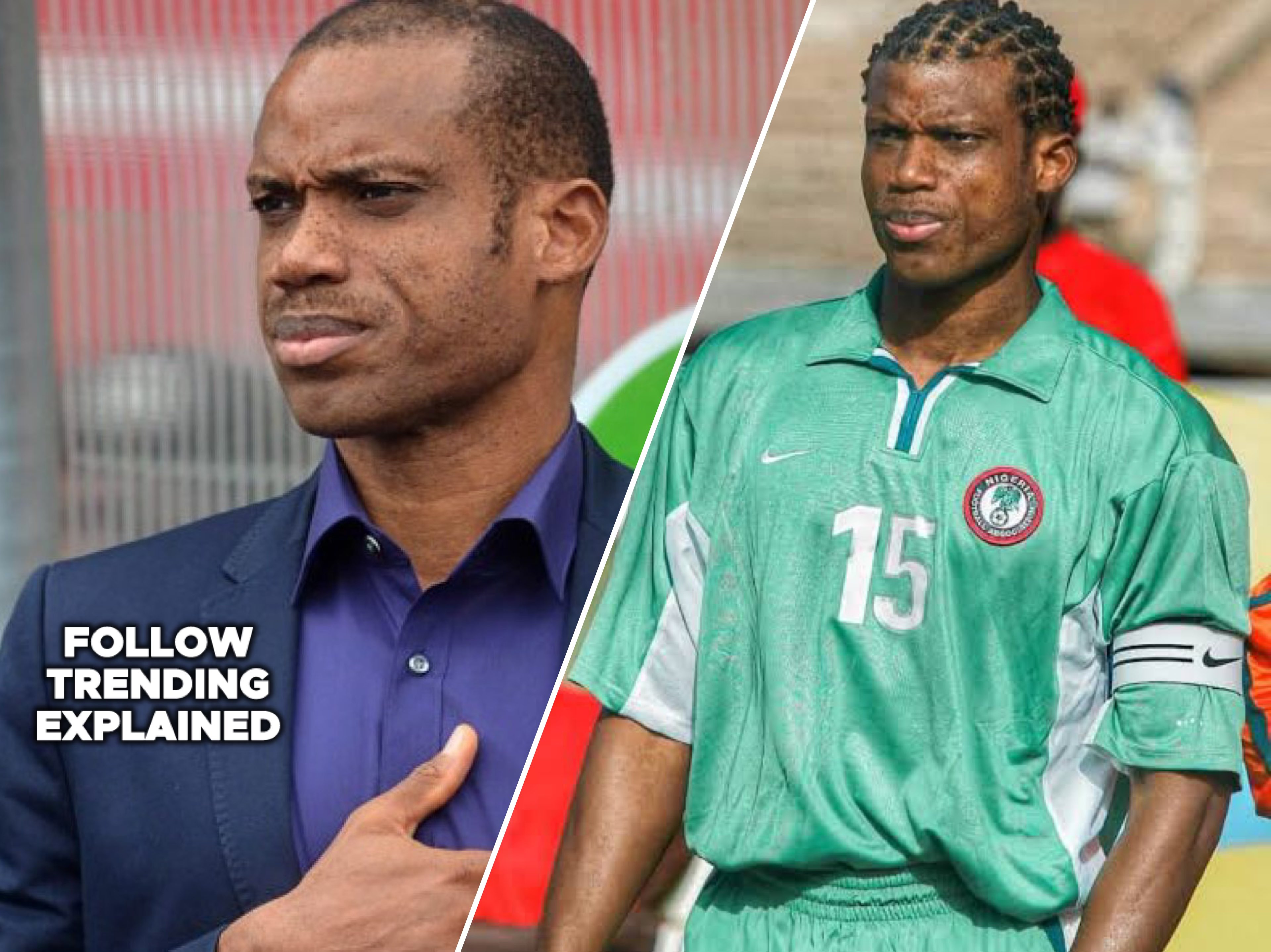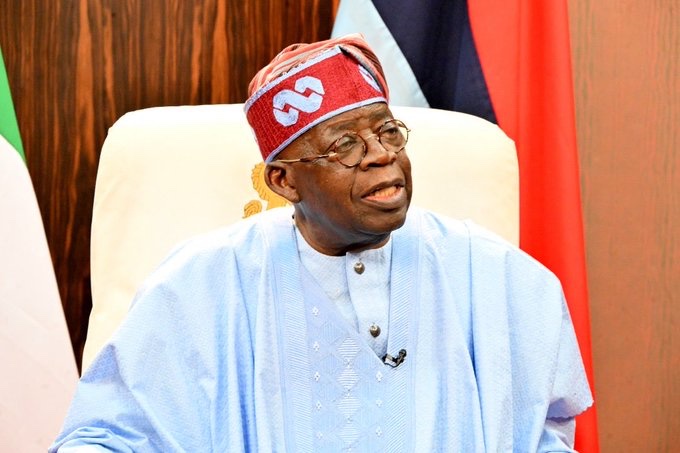
SHOCKING REVELATION: Sunday Oliseh Exposes How NFF Allegedly Pocketed $1 Million Meant For Super Eagles Players After 2002 World Cup Qualification

In a bombshell revelation that has reignited debate over corruption and mismanagement in Nigerian football, former Super Eagles captain Sunday Oliseh has exposed how the Nigeria Football Federation (NFF) allegedly pocketed $1 million paid by FIFA in 2002 as a reward for the country’s qualification for the Korea-Japan World Cup. According to Oliseh, none of the players who fought valiantly to secure the ticket to the global football showpiece received a dime from the payment that was meant to be shared equally between the players and the federation.
Taking to his social media platform to make the stunning claim, Oliseh wrote, “In 2002, FIFA paid us $1 million for qualifying for the World Cup. We agreed to split it; 50% for players; 50% for NFF. Till today, NFF pocketed the money. No player was paid.” His statement immediately sent shockwaves across the Nigerian football community, with fans, analysts, and ex-players reacting in disbelief and outrage over yet another alleged case of financial malpractice within the federation.
The 2002 World Cup remains a memorable one for Nigeria, as it was the country’s third consecutive appearance at the tournament after impressive showings in 1994 and 1998. The road to qualification was not an easy one, but the Super Eagles eventually made it under the guidance of Coach Shaibu Amodu, with a squad that included some of the country’s most talented players—Jay-Jay Okocha, Nwankwo Kanu, Taribo West, Finidi George, and of course, Sunday Oliseh himself. Their qualification brought immense pride to the nation, and FIFA’s $1 million payment was meant to reward the team’s success and motivate further progress.
However, Oliseh’s revelation paints a dark picture of how the funds were allegedly mismanaged. According to the former captain, there was a clear agreement between the players and the football authorities at the time that half of the FIFA qualification bonus would go to the players who labored on the pitch to make the dream possible, while the other half would go to the NFF for administrative and logistical purposes. Yet, as Oliseh claims, that promise was never fulfilled.
For many Nigerians, the news did not come as a total surprise. Allegations of corruption, embezzlement, and lack of transparency have plagued the NFF for decades, with several past executives being accused of diverting funds meant for players, coaches, and team development. What makes this latest revelation particularly alarming is that it involves a World Cup fund from over two decades ago—a stark reminder of how deep-rooted the problem is.
Fans on social media were quick to express their anger and disappointment. “Imagine the level of corruption that these men had the guts to pocket players’ money from 2002 till today,” one fan wrote. Another commented, “These players gave everything for the country. The least they deserved was their rightful share. The NFF has been ruining Nigerian football for too long.” Others called for an independent probe into the finances of past and present NFF administrations, urging President Bola Tinubu’s government and the Ministry of Sports to take decisive action.
Oliseh’s statement also revived discussions about the broader issue of how Nigerian athletes are treated by sports administrators. From unpaid allowances to delayed bonuses and broken promises, the pattern seems to repeat itself across generations. In the same 2002 World Cup campaign, reports had surfaced that players were threatening to boycott training sessions over unpaid bonuses, and even after the team’s qualification, disputes over money continued to make headlines.
The scandal surrounding the alleged missing $1 million adds another chapter to the long list of controversies in Nigerian football. In 2014, during the World Cup in Brazil, players had to threaten a strike before being paid their appearance fees, forcing then-President Goodluck Jonathan to intervene directly. Earlier, in 1998 and 2000, players also clashed with officials over unpaid allowances, while in recent years, both male and female teams have been vocal about similar issues.
Many observers believe that Oliseh’s revelation is not just about the past but a call for accountability in the present. “If a national hero like Sunday Oliseh can boldly speak out after 23 years, then it shows how bad things have been,” said a former NFF staffer who requested anonymity. “The sad part is that nothing changes. Every administration comes with promises of reform, but the same corruption and mismanagement continue.”
The NFF, as of the time of this report, has not officially responded to Oliseh’s allegation. However, insiders within the federation have hinted that the matter may be revisited to verify the claims. Some officials have privately expressed shock, while others suggest that documentation from that era may be incomplete or missing altogether, making verification difficult. Still, many Nigerians are calling for transparency, demanding that the NFF publicly release all financial records related to FIFA’s 2002 World Cup qualification payment.
Oliseh, known for his outspoken nature and integrity, has long been an advocate for reforms in Nigerian football. As a player, he was widely respected for his discipline and leadership, captaining the Super Eagles during one of its most successful periods. As a coach, he also tried to instill professionalism in the national team setup, though his tenure ended controversially in 2016 following disagreements with the federation. His new revelation, therefore, adds credibility to his long-standing criticism of how football in Nigeria has been run.
Beyond the outrage, Oliseh’s claim has also sparked conversations about what can be done to prevent such financial abuse in the future. Many stakeholders believe that the only way forward is for Nigerian football to embrace full financial transparency—publishing income and expenditure reports for all FIFA and CAF funds, auditing past accounts, and holding individuals accountable for missing money. Some have even called for the intervention of anti-corruption agencies such as the EFCC to investigate not just the 2002 case, but all funds that have passed through the NFF in the last two decades.
Football analysts argue that until such deep-seated corruption is tackled, Nigerian football will continue to struggle both on and off the pitch. They point out that while other African countries like Morocco and Senegal have made giant strides through solid management and infrastructure, Nigeria continues to recycle the same problems, from poor player welfare to inadequate planning and administrative chaos.
As the news continues to spread, Sunday Oliseh’s revelation stands as both a painful reminder of betrayal and a rallying cry for justice. The players who made Nigeria proud in 2002 deserved better, and the Nigerian people deserve the truth. For too long, the NFF has operated with impunity, shielded by bureaucracy and lack of accountability. But with renewed calls for transparency and reform, this may be the moment that forces Nigerian football to finally confront its ghosts.
For now, Nigerians are left to ask: where did the $1 million go? And more importantly, will anyone ever be held accountable?


